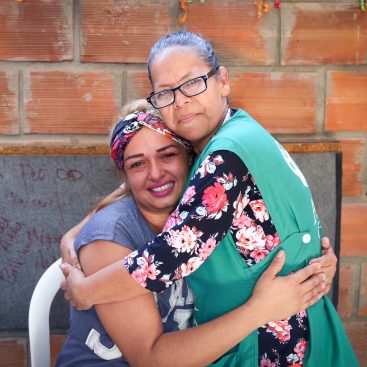Research Team:
PI:

Diego Romero
Assistant Professor of Political Science
Utah State University
diego.mejiaromero@usu.edu
Co-PI’s:

Juan Tellez
Assistant Professor of Political Science
University of California, Davis
juan.f.tellez@gmail.com

David Dow
Assistant Professor of Political Science
Naval Postgraduate School
david.dow@nps.edu

Irina Agnetta Reyes Maszich
Research Professor
Universidad del Valle
iareyes@uvg.edu.gt
Project Information:
Title of Project:
USAID/Guatemala and OCE Impact Evaluation Scoping for the Guatemala Smart and Secure Cities Activity
USAID Sector:
Democracy, Human Rights & Governance
Country:
Guatemala
Lead Institution:
Utah State University
Co-PI Institution:
University of California, Davis, Universidad del Valle
Final Budget:
$39,979.18
Project Length:
8 months
Research Objective:
The objective of this scoping project is to develop and probe the feasibility of several research designs for an impact evaluation related to the SSC activity’s citizen security/crime and violence prevention component in Guatemala, including evaluations using an RCT design. The impact evaluation will focus on secondary prevention intervention(s) intended to create opportunities for at-risk populations, and/or innovative tertiary prevention activities for former and repeat offenders to facilitate their reintegration into society and prevent recidivism. The activity may look at both program impact and operational considerations, such as identifying at-risk youth or issues of recruitment (and retention), to engage in SSC’s evidence-based prevention programs. The specific objectives of the study include: 1. To identify the specific SSC activity component(s) that will be considered for a rigorous impact evaluation; 2. To determine possible evaluation objectives and propose research questions that could be addressed through a rigorous impact evaluation; 3. To identify up to three rigorous impact evaluation design options, with at least one being an RCT; 4. To assess the feasibility of each of the proposed rigorous impact evaluation options; and 5. To provide a description of the methodology required for the implementation of each feasible option.
Project Description:
Our team proposes a three-phase workplan to design such impact evaluations. Phase one consists of three parallel processes: (1) literature and relevant documents review, (2) consultation meetings with USAID, the Guatemala SSC activity IP, other key stakeholders and LASER PULSE, and (3) stakeholder interviews. In phase two, our team will develop a first draft of the feasibility memo with up to three evaluation design proposals, informed by our work in the previous phase. We anticipate that, depending on the specific interventions to be implemented, there will be opportunities to develop an RCT with treatment assignment randomized at the neighborhood level or at the individual level, if the interventions were to include e-government tools such as citizen apps. The evaluation design memo will be considered an internal document to guide decision making.
Once an evaluation design is selected, the design memo will be included in the SOW for the impact evaluation, and will be published as an annex to the eventual evaluation report, per USAID policy and guidelines. We will also work closely with USAID, IP through coordination with USAID at this stage as part of the co-creation process, to ensure that we take their ideas, concerns and experience into account when developing the appropriate impact evaluation designs. In phase three, we will present the memo with our proposals to USAID and the relevant stakeholders to receive their feedback. The Implementing Partner will review the proposals through USAID. The objective of this revision phase is to ensure the feasibility of our proposals. We plan to incorporate their comments and suggestions on the final version of our memo, modifying our proposal accordingly.
Embedded Research Translation Products:
Evaluation Design Memo: This memo will contain a description of the proposed rigorous evaluation designs and a feasibility report. The work presented in this memo will be based on the findings from the literature review, the periodic consultation meetings and the interviews with stakeholders.
Embedded Research Translation Audience:
USAID/OCE
Outputs




